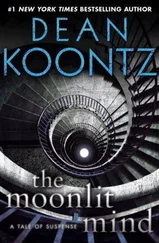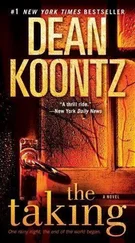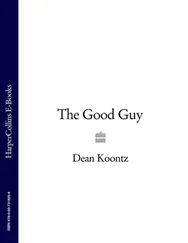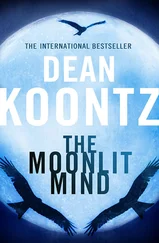He had written the most widely adopted and highly praised textbook on general psychology in thirty years, and his position as one of the most knowledgeable experts in the specialty of abnormal psychology was unchallenged. Yet Boothe, for all his knowledge and expertise, wasn't without problems of his own.
He was fat. Not just pleasantly plump. Fat. Shockingly, grossly overweight. When Charlie encountered Denton Boothe ("Boo" to friends), after not having seen him for a few weeks, he was always startled by the man's immensity; he never seemed to remember him as being that fat.
Boothe stood five-eleven, Charlie's height, but he weighed four hundred pounds. His face did a good imitation of the moon. His neck was a post. His fingers were like sausages. Sitting, he overflowed chairs.
Charlie couldn't understand why Boothe, who could uncover and treat the neuroses even of those patients highly resistant to treatment, could not deal with his own compulsive eating. It was a puzzlement.
But his unusual size and the psychological problems underlying it did nothing to change the fact that he was a delightful man, kind and amusing and quick to laugh. Although he was fifteen years older than Charlie and infinitely better educated, they had hit it off on first encounter and had been friends for several years, getting together for dinner once or twice a month, exchanging gifts at Christmas, making an effort to keep in touch that, sometimes, surprised both of them.
Boo welcomed Charlie and Henry into his office, part of a corner suite in a glass high-rise in Costa Mesa, and insisted on showing them his latest antique bank. He collected animated banks with clockwork mechanisms that made a little adventure out of the deposit of each coin. There were at least two dozen of them displayed at various points in the office. This one was an elaborate affair the size of a cigar humidor; standing on the lid were hand-painted metal figurines of two bearded gold prospectors flanking a comically detailed donkey. Boo put a quarter in the hand of one prospector and pushed a button on the side of the bank. The prospector's hand came up, holding the coin out to the second prospector, but the donkey's hinged head lowered, and its jaws clamped shut on the quarter, which the prospector relinquished. The donkey raised its head again, and the quarter dropped down its gullet and into the bank underneath, while both prospectors shook their heads in dismay. The name on the donkey's saddlebags was Uncle Sam.
"It was made in 1903. So far as anyone knows, there are only eight working models in the world," Boo said proudly." It's titled "The Tax Collector,' but I call it "There Is No Justice in a Jackass Universe." "
Charlie laughed, but Henry looked baffled.
They adjourned to a corner of the room where large comfortable armchairs were grouped around a glass-topped coffee table.
Boo's chair groaned softly as he settled into it.
Being a corner office, the room had two exterior walls that were largely glass. Because this building faced away from the other high-rise structures in Costa Mesa, toward one of the few remaining tracts of agricultural land in this part of the county, there seemed to be nothing outside but a gray void composed of churning clouds, gauzy veils of lingering fog, and rain that streamed down the glass walls in a vertical river. The effect was disorienting, as if Boothes office didn't exist in this world but in an alternate reality, anotherdimension.
" You say this is about Grace Spivey?" Boothe asked.
He had a special interest in religious psychoses and had written a book about the psychology of cult leaders. He found Grace Spivey intriguing and intended to include a chapter about her in his next book.
Charlie told Boo about Christine and Joey, about their encounter with Grace at South Coast Plaza and the attempts on their lives.
The psychologist, who didn't believe in being solemn with patients, who used cajolery and humor as part of his therapy, whose face seldom played host to a frown, was now scowling.
He said, "This is bad. Very bad. I've always known Grace is a true believer, not just a phony, mining the religious rackets for a buck. She's always been convinced that the world really was coming to an end. But I never believed she was sunk this deep in psychotic fantasy." He sighed and looked out at his twelfth floor view of the storm." You know, she talks a lot about her visions,' uses them to whip her followers into a frenzy. I've always thought that she doesn't really have them, that she merely pretends to have them because she realizes they're a good tool for making converts and keeping disciples in line. By using the visions, she can have God tell her people to do the things she wants them to do, things they might not accept if they didn't think the orders were coming straight down from Heaven."
" But if she's a true believer," Henry said, "how would she justify fakery to herself?"
" Oh, easily, easily," the psychologist said, looking away from the rain-filled February morning." She'd justify it by saying she was only telling her followers things that God would've told them, anyway, if He actually had appeared to her in visions.
The second possibility, which is more disturbing, is that she ac Lually is seeing and hearing God."
" You don't mean literally seeing Him," Henry said, surprised.
" No, no," Boo said, waving one pudgy hand. He was an agnostic, flirting with atheism. He sometimes told Charlie that, considering the miserable state of the world, God must be on extended vacation in Albania, Tahiti, Cleveland or some other remote corner of the universe, where the news just wasn't getting to Him. He said, "I mean that she's seeing and hearing God, but, of course, He's merely a figment of her own sick mind.
Psychotics, if they're far enough over the line, often have visions, sometimes of a religious nature and sometimes not. But I wouldn't have thought Grace had gone that far 'round the bend."
Charlie said, "She's so far gone that they don't even have Taco Bells where she's at."
Boo laughed, not as heartily as Charlie would have liked, but he did laugh, which was better than the scowl that made Chaflie nervous. Boo had no pretensions about his profession and held nothing sacred; he was as likely to use the term "fruitcake" as "mentally disturbed." He said,
"But if Grace has slipped her moorings altogether, then there's something about this situation that's hard to explain."
To Henry, Charlie said, "He loves to explain things. A born pedant.
He'll explain beer to you while you're trying to drink it.
And don't ask him to explain the meaning of life, or we'll be here until our retirement funds start to pay off."
Boothe remained uncharacteristically solemn." It isn't the meaning of life that puzzles me right now. You say Grace has gone 'round the bend, and it certainly sounds as if you may be correct. But you see, if she really believes all this Antichrist stuff, and she's willing to kill an innocent child, then she's evidently a paranoid schizophrenic with apocalyptic fantasies and delusions of grandeur. But it's hard to imagine someone in that condition would be able to function as an authority figure or conduct the business of her cult."
"Maybe someone else is running the cult," Henry said.
"Maybe she's just a figurehead now. Maybe someone else is using her."
Boothe shook his head." It's damned difficult to use a paranoid schizophrenic the way you're suggesting. They're too unpredictable. But if she's really turned violent, has begun to act on her doomsday prophecies, she doesn't have to be crazy. Could be another explanation."
" Such as?" Charlie asked.
"Such as. maybe her followers are disillusioned with her.
Maybe the cult is falling apart, and she's resorting to these drastic measures to renew her disciples' excitement and keep them faithful."
Читать дальше










